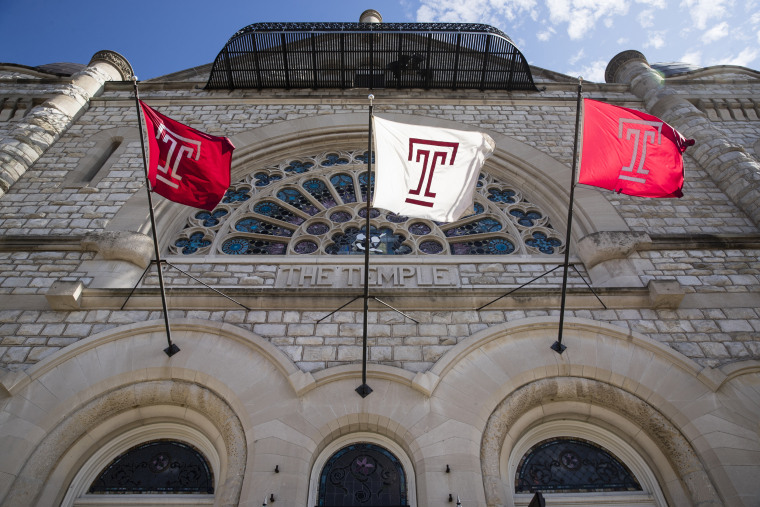Health officials say at least 67 cases of mumps have been tied to Temple University, the most cases in the city since 2011.
Testing confirmed that 12 people contracted the disease and 55 others are considered probable cases, a spokesman for the Philadelphia Department of Health said Monday. The tally of cases jumped significantly in the past week. A count last Tuesday sat at 54.
Earlier this month the Department of Public Health for Philadelphia cited that waning effectiveness of the mumps vaccination may have contributed to the outbreak. At the time they did not point exclusively to unvaccinated people as the direct cause of the outbreak, but amid growing concerns the university changed its immunization policy for incoming students by requiring them to have received two doses of the MMR (measles, mumps and rubella) vaccine before entering school. The vaccine decreases your risk of contracting the virus by about 88 percent, the CDC said.
Spokesman James Garrow says the outbreaks tend to be more common on college campuses where people are more closely in contact.
Rumors among students circulating about a possible temporary closure of the North Philadelphia university was shot down by Temple spokesman Christopher in an email Monday evening citing that “no conversations regarding university closure have taken place.”
There is no cure for mumps. Symptoms include feeling tired, fever and swollen salivary glands on the side of the face. Many who are infected may not know, as symptoms typically appear 16 to 18 days after exposure.
Last month, Temple University Student Health Services issued a statement to its community members cautioning that they be aware of the symptoms and to take steps to keep themselves and others healthy, after being notified that several Temple students have tested positive for mumps. Special attention was paid to students who were going on vacation for spring break.
Mumps is highly contagious, especially among people in crowded environments, and is spread through saliva and respiratory secretions, but the disease has been rare since widespread use of a vaccine introduced in the 1960s.
To avoid spreading the disease people are advised to:
- Wash hands frequently
- Use sleeve technique when covering mouth
- Avoid sharing food and drink
- Stay home from work or school if symptoms appear
Garrow said the outbreak probably won’t increase in number since Temple health officials are being told to treat the virus instead of testing.
The city’s public health department said in 2017, there were eight confirmed cases in Philadelphia.



